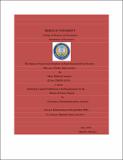| dc.description.abstract | In Ethiopia, agriculture is the primary determinant of economic growth and reducing level of poverty because it has the largest component of the economy. Farming irrigation also has both direct and indirect impact on food security and it is one of the most important rural development strategies. Food security becomes as a result of economic growth. The purpose of this research is to assess the impact of small-scale irrigation in ensuring rural households food security based on data collected from 150 farmers in Emba Alaje Woreda Tigray Regional state; Ethiopia. Descriptive statistics and Heckman‟s two-stage estimation were used to estimate determinants of small-scale irrigation participation and household food consumption expenditure. The study findings indicate that sex, education level, cultivated land, distance to FTC, access to extension services, access to credit and water availability were the determinant households‟ participation in small-scale irrigation where as household size, cultivated land, soil fertility, total livestock household consumption. The Foster Greer Thorbecke (FGT) explains that irrigation participants are better-off than non-participant. That is poverty indices was lower among irrigation participants compared to non-participants, with 35.5% of non-participants classified as poor compared to 26.3% of irrigation participants. In the same way the main findings of the research indicates that irrigation access enabled the sample households to grow crops more than once a year; to insure increased stable production, income and consumption. The study concludes that small-scale irrigation is one of the viable solutions to secure household food needs in the study area but it did not remove the food insecurity problem and recommends that investments in small-scale irrigation continue for poverty reduction. | en_GB |


